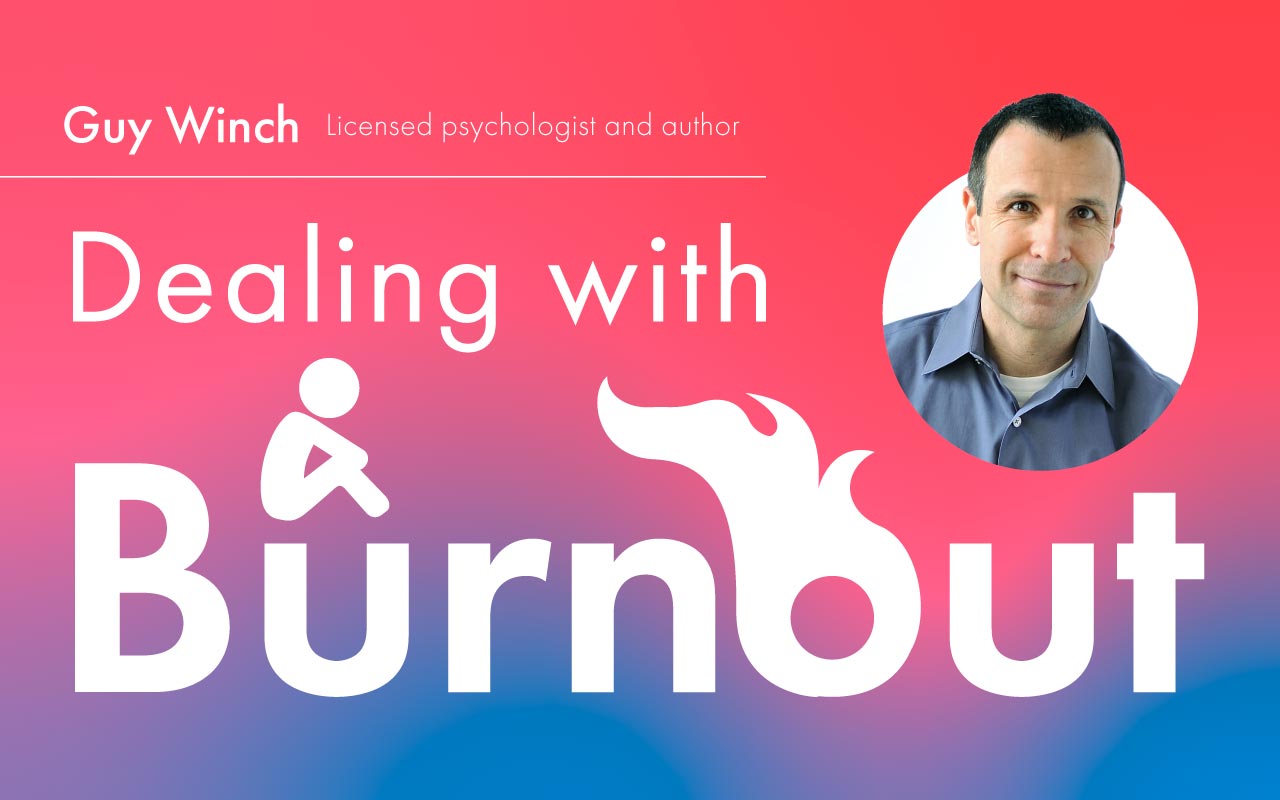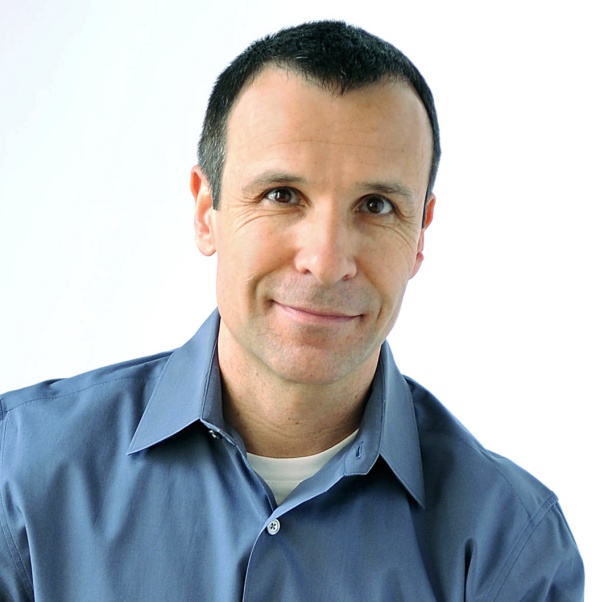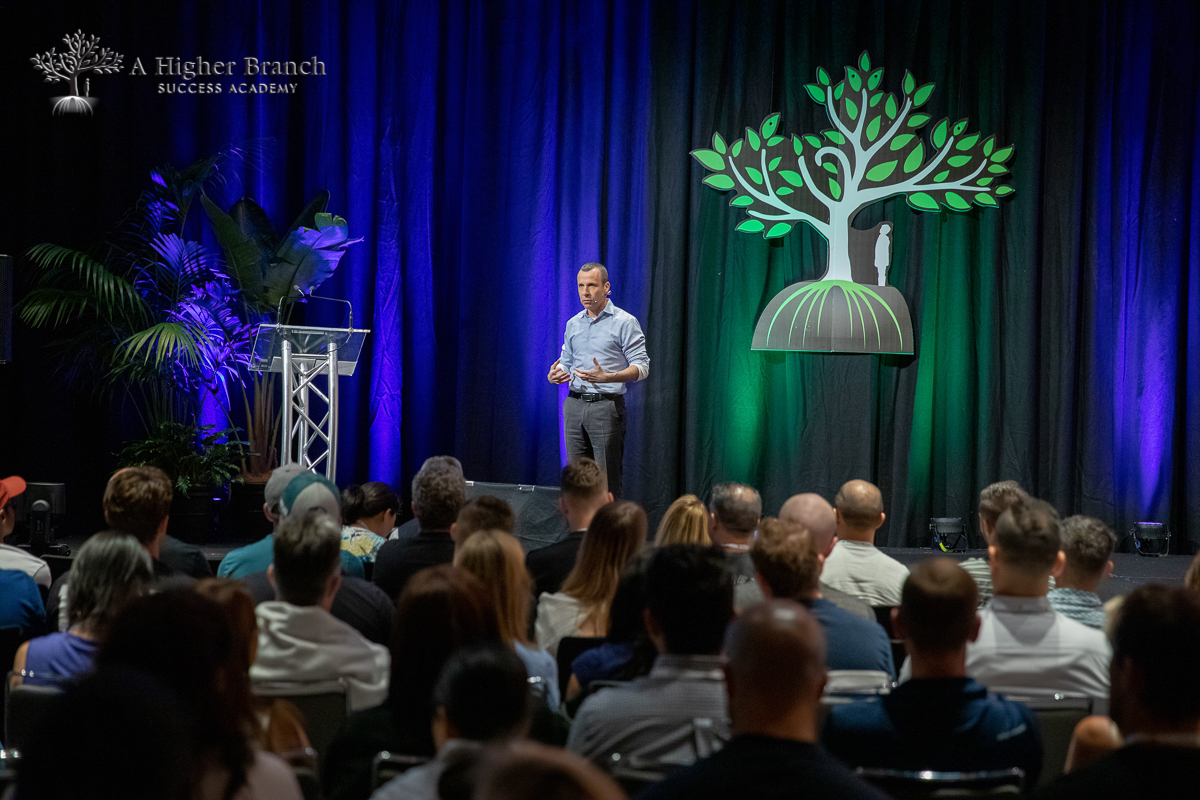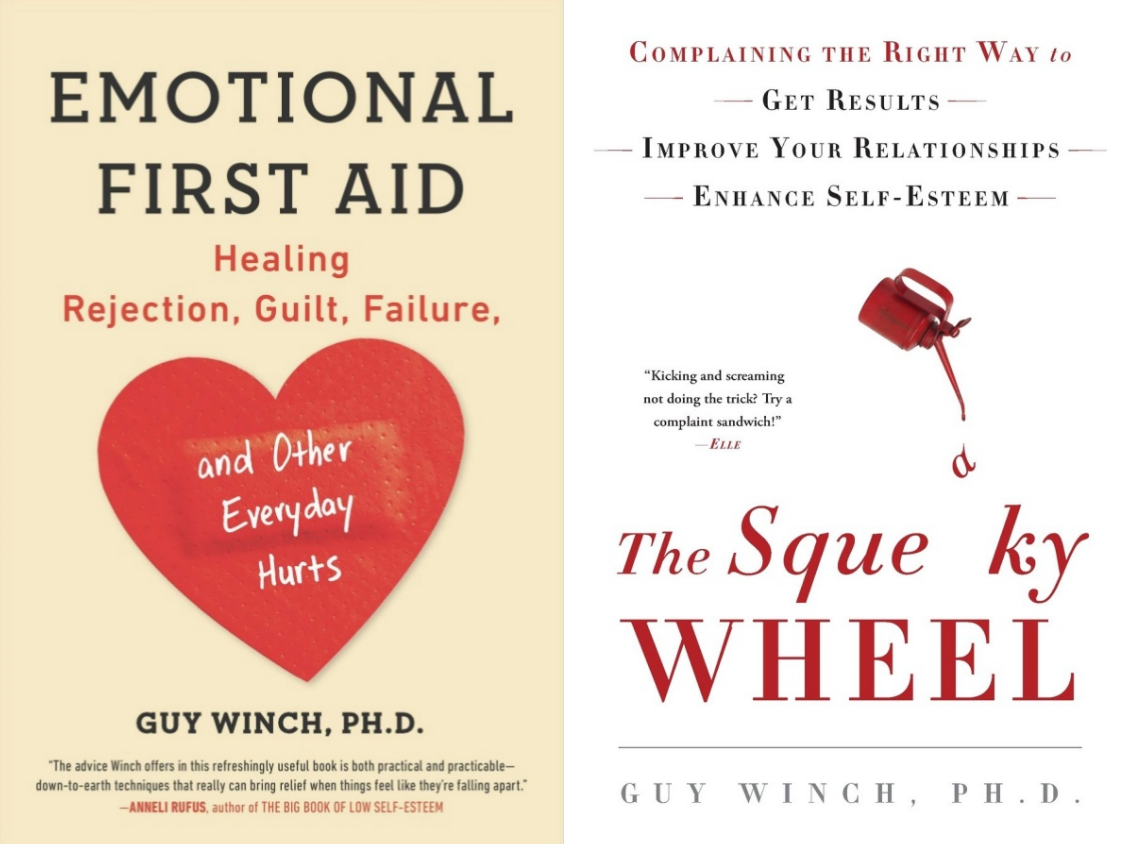Learn To Treat Burnout With the Urgency of a Bleeding Wound

What would you do if you accidentally cut yourself on the job? Probably disinfect and bandage it up, or if it's more severe, rush to the emergency room. Under no circumstances would you risk letting the wound fester.
Now what if that cut wasn't physical, but emotional? Many still believe the best solution is to wait for the pain to pass, but just as you wouldn't wait for gangrene before tending to an injury, you don't have to wait for deep mental anguish before taking emotional care of yourself.
One area in which we are at particular risk of sustaining emotional injuries is in the workplace. We've all occasionally felt overwhelming stress or a sudden lack of motivation, but from there it can be hard to realize when we're close to burning out. To deepen our understanding of burnout and well-being at work, we spoke to licensed psychologist, prolific speaker and acclaimed author Dr. Guy Winch. He made it very clear that as a society, we still have a long way to go in acknowledging the value of our emotional health.
Becoming attuned to our emotional state
Alex: Let's start with the basics. Is burnout a real thing or is it an invention by non-psychologists?
Guy: Burnout is absolutely real. The psychological aspect is that there's a tipping point beyond which something shifts internally in terms of how we feel about our work, how we feel doing our work, and how we function in the workplace. That tipping point occurs when, like a glass of water that overflows, we surpass what we're able to contain. When that happens, we start to disconnect emotionally; to numb out.
Alex: There is still a strong belief among certain people that burnout is a new phenomenon that only affects sensitive young people. Is burnout really new?
Guy: It's not new. We understand burnout better now, and we also understand that some older people may have this expectation that you need to work through it; that emotions are things you can sweep aside and ignore. That kind of thinking was great during World War II because indeed the best you could do was to keep calm and carry on, but we're not living in the blitz anymore.
This idea that you have to ignore every signal your mind is sending you about your well-being is an old perception. Burnout hasn't changed, but our attitude toward it has.
Alex: What's wrong with the old perception?
Guy: It ignores the basic premise that our feelings are fundamental to our well-being, and that our emotional state is as important as our physical state.
In the workplace, the biggest contributing factor to your success is often not your physical well-being, but your emotional well-being. Being in emotional distress literally makes people less able to draw upon their cognitive abilities. You drop points on an IQ test and your executive functions don't work as well.
What we know now is that ignoring these feelings doesn't work. If you have people waking up in the morning and crying at the thought of going to work, we can—and have to—do something about it.

Dr. Guy Winch is a licensed psychologist, author, and keynote speaker. He holds a Ph.D. in clinical psychology from New York University and is a member of the American Psychological Association. His books have been translated into 27 languages. Guy's first TED Talk, Why we all need to practice emotional first aid, has been rated among the most inspiring TED Talk of all time. He also writes the popular Squeaky Wheel Blog and hosts his own podcast.
Learning to recognize signs of injury
Alex: What are the symptoms of that tipping point? Are they the same for everyone?
Guy: The kind of emotional distress we reach during burnout manifests itself differently for each person, depending on our psychological makeup. As psychologists, what we look for are changes in behavior, mood, and functioning. That's how we begin to determine if people are becoming depressed, anxious, or indeed burned out.
For example, are there tasks at work that you used to enjoy doing six months ago, but no longer enjoy now? Does everything feel like just another task? Or does your work provoke some vague interest that comes with such a heavy, visceral emotional weight that you don't feel like doing it?
It can also be that you're very close to the tipping point, barely holding on, but if one more thing goes wrong you'll feel like crying or giving up.
One problem with recognizing burnout that I mention in my TED talk is that we tend to think of work stress as something that manifests at work, when in fact, you take it home with you. You can become irritable or emotionally detached in your personal life. It's not an emotion that manifests selectively at the office.
The reason is that at work, we're usually focused on work. Us humans are not good at multitasking. We think we are, when in fact we're rapidly switching from one task to another. We don't have a parallel processor. Because of that, there's not much space at work to experience distress.
It's when you're not at work—when you're commuting, having dinner, or having a conversation with family or friends—that these feelings and stresses tend to surface.
Alex: Precisely because burnout spills out into our personal lives, it sounds like it can be hard to distinguish from depression or other ailments. How do you tell them apart?
Guy: Say a weekend is coming and you decide to clear your schedule. You're planning to relax, unwind, and only do things that you find meaningful. If you're burned out, doing these activities will be easier than if you're depressed. If you're depressed you won't feel like doing meaningful activities either. You can also tell if a big project is causing burnout, because as soon as the project is taken away, you'll feel a huge sense of relief. Depression is more systemic and stays longer.
Here's where burnout gets tricky: First, you want to catch it before it happens. Second, you need to make adjustments both in and out of work, since burnout affects everything.
Alex: Regarding that first point, how can you catch burnout before it happens?
Guy: You have to take inventory every once in a while. You probably have an annual physical checkup, perhaps a dental checkup twice a year, right? Every few months, you should also be asking yourself, "How am I feeling about my work?"
Not just casually, but in a systemic way. Write down all the aspects of your job—managerial, administrative, supervisory, creative, and so on—and ask yourself how you are feeling about each of them. Are you looking forward to them? Do they excite you? Do you have opportunities for growth? Or when you look at these lists, do you only feel tightness and heaviness?
Take your temperature every few months and note changes. If something that used to excite you now leaves you feeling indifferent, you may be headed toward some form of burnout. Perhaps you've plateaued in your achievements and are feeling an urge to do something new.
On top of the inventory of your tasks, also look at your relationships with your boss, teammates, subordinates, and so on. How do you feel about them? Sometimes the way you feel about your coworkers can be overwhelming. Note those changes as well. You can even use a scale of one to ten to rate your interest, excitement, apprehension or distress. That way you'll be able to see clearly when there are significant shifts over time.
Alex: A lot of companies have periodic meetings with a boss that can resemble the emotional checkup you describe. Should you do these inventories with other people, or are they better done alone?
Guy: Alone. It's all about your feelings, and it's already hard enough to take your own emotional temperature.
We're not used to doing these kinds of inventories. When I explain the notion of an emotional health checkup, people give me that look of, "What are you talking about?" But those same people agree that a physical or dental checkup are the most normal things in the world. You have to do them not only to treat the ailments you already have, but also to see what could be coming.
Because people are so unaccustomed to looking into their own feelings, many lack emotional literacy. They know they're feeling bad but have trouble identifying whether they're upset, overwhelmed, irritable, resentful, or something else. Feelings can all feel like one big mush, when in fact it's important to understand what's happening so we can take the right actions.

Alex: Before getting into those actions, what can you do if you think you're starting to see burnout symptoms in someone else?
Guy: The same thing you would do if someone you care about seems to be in any kind of unrelenting emotional distress over time. However, while you may be able to tell that someone is having a problem, it can be very hard to understand the nature of that problem. Is it in their home life, their marriage, their friendships, depression, or burnout?
The best thing you can do is ask them to grab a coffee, or lunch, or a drink after work. Have a conversation about how things are going generally and give them space to open up. Listen carefully and see if you can draw something out.
Don't ask them straight up, "Are you depressed?" You want to be subtle, not intrusive. Use mild language like, "You seem a little preoccupied lately" so that they don't take it as an insult. You don't want to make it seem like you're able to tell something's wrong when they themselves may not be aware of it.
Be delicate and give space. If you're close enough, they may open up to you. After that, you can discuss adjustments and ways to deal with the problem.
Applying the appropriate treatment
Alex: We've discussed the definition and identifying symptoms. If you recognize you're getting burned out, what can you do?
Guy: It really depends. For example, a lot of people who suffer from burnout are unaware of how much time they spend ruminating about work. They'll say things like, "I can't be burned out, I only work 40 hours a week, which is normal!" Then, when I ask them to keep a log, some of them report ruminating for 10, 20 hours, if not more! Add that to your 40 hours at the office and suddenly you're in a 60-hour workweek.
Ruminating is work you're not getting paid for, where you're not getting anything done, and is distressing. The good news is that it's also something we have some control over.
Alex: I know you talk about this in your book Emotional First Aid, but how do you recognize rumination?
Guy: First of all, it's important to understand the difference between healthy and unhealthy self-reflection. Rumination by definition is chewing over the same distressing thoughts over and over again in an unproductive manner.
Say you had an argument with your boss. Healthy self-reflection would be to ask yourself how to better approach them, whether you can change your communication, or what it is they aren't responding to. Rumination would be to replay the argument over and over again.
You can recognize rumination because you feel it physically: that tightness in your chest, twisting of your stomach, tension in your shoulders. You don't come out of the thought process with ways to move forward. Instead, you just feel heavier.

Guy's books Emotional First Aid: Healing Rejection, Guilt, Failure and Other Everyday Hurts as well as The Squeaky Wheel: Complaining the Right Way to Get Results, Improve Your Relationships, and Enhance Self-Esteem have been translated into dozens of languages and enjoyed global success.
Guy: Another example related to burnout is if you're told you need to do a task and you feel so overwhelmed, you're not able to think of how to move forward. Instead, you ask yourself repeatedly, "How can I possibly get this done?"
That way of thinking is very damaging, so it's important to catch it—especially since it has repercussions on all aspects of our health, from sleep disturbance, to unhealthy eating habits, to greater stress levels.
Alex: Once we do catch ourselves ruminating, what can we do about it?
Guy: First, try to reframe the question. Convert your ruminative thought into a problem-solving one. An example I often give is a woman who wanted to spend quality time with her child, but instead would ruminate the whole time about how much work she had to do. It was a loss on both counts: She wasn't getting any work done, nor was she getting any quality time.
Converting this ruminative thought into a problem-solving one is a matter of scheduling. Decide when you can get your work done, move things around to reassure yourself, and get the parts weighing on you the most done first.
That's another thing: stop pushing stressful items off to the last minute. I had one person tell me they hated filing their expense report, but since they had to do it every month, they'd wait until the last possible minute. They were spending the entire month with that expense report in the back of their mind, leeching on their emotional and intellectual resources. Don't get to a point where you're spending ten times more time thinking about the report than it would take to just file it!
People roll their eyes when I tell them to do these tasks and I agree, they're terrible, but the reality is you do the crappy tasks first because there's a relief when they're done and you're not prolonging the stress that goes with the task.
Alex: I'm guilty of that in almost every aspect of my life. (laugh)
Guy: Now you know you have to stop! (laugh)
A third thing is to create guardrails that define the end of your day. In many cultures—and especially now during COVID when a lot of people are working from home—there's no real end to the workday. Managers have this idea that because their team is at home, they're probably not going anywhere or doing very much anyway.
The reality is that you need time when you're no longer at work. I think it's very important to have a ritual to help you define the end of your day. One person told me that when working from home, they would end each day at 6 pm, leave the house with their young children inside, get in the car, drive around the block, come back and tell the kids, "I'm home!"
The kids were there thinking, "Yeah, you just left!" but it was still a very important ritual that this person was used to.
Rituals work like a statement. The subtext is, "I've finished work. I'm available to you and to myself." You can find many ways to trigger that ritual, whether it's changing clothes, changing the lighting, using music; whatever works for you.
You need to define when your work ends so that your family and friends know you're not at work, and they can hold you accountable. If you really still have to check emails past your regular work time, set it in your schedule, "At 9 pm I'll give myself 15 minutes to check my emails." Outside of that scheduled time, leave yourself space to unwind and recharge.
Alex: I'll definitely apply that advice for myself, but what about for those around me? Can I turn to my partner and say, "It's 8 pm, your work time is over, stop checking your emails"?
Guy: When applying this kind of advice, it works better when you do it together—or when the entire household does it. Your first conversation shouldn't be, "It's 8 pm, stop checking your emails," but rather, "Let's define and protect our private time." Agree on a time when you're both done with work and truly focus on unwinding.
Again, if you really have to check emails, you can schedule a time to both do that, but it should be a negotiation. Once you've fixed your schedules, then if your partner is still checking their emails outside the allotted time, you can hold them accountable.
Keep in mind that if your partner isn't disconnecting from work, perhaps you haven't communicated clearly about how you're unwinding. Have you thought actively about it? A lot of people watch TV, but is that really helping you unwind?
One thing I recommend to couples in particular is if you're going to watch TV, it's fine to binge, but don't watch for four hours in silence and then say, "Alright, off to bed!" Pause between the episodes and talk about what you saw. Those conversations are the connective tissue of your relationship and are very important for unwinding.
Alex: What about when it's not a partner but a colleague who's having trouble disconnecting? What actions can you take to help them?
Guy: You can tell them you've done some reading about this thing called rumination, and you're trying to be more aware of your own work-life balance. Try to frame it as a personal problem, that you have a tendency in your own life to get overwhelmed and stressed out by work, so you're trying to be more mindful. Then suggest you're happy to discuss it with them if it's something they want to hear about. That way you're sharing your experience, rather than pontificating.
People won't react well if you pretend to know what they need better than they do.
Alex: So if you're not a psychologist, don't try to give psychological advice.
Guy: Even if you are a psychologist, it's annoying if it's unrequested!
Getting companies involved
Alex: Finally, is there anything companies can do more broadly to reduce the chance of burnout among their employees?
Guy: Yes. Have more of a discussion—which is very difficult in certain cultures—in which you make it clear that it's OK to talk not only about your physical well-being, but also your emotional well-being. It's obvious to a CEO that an employee going through chemotherapy shouldn't be working because they feel terrible. It should be just as obvious that an employee going through a period of major depression or a painful romantic heartbreak can't simply get over it, and probably also needs some time.
When it comes to our emotional well-being, we're 100 years behind where we are with our physical well-being. A century ago, we were talking about the importance of covering up wounds, getting treated to prevent infection, taking prophylactic measures against heart disease, and so on. We're finally beginning that process for our emotional lives.
That's what this century is going to be about. Any company that wants to get ahead needs to start incorporating that thinking, because right now, we're missing half of the equation, and it's having an enormous impact on our performance and productivity.
Collectively, we need to start investing in our emotional health and safety.
Writer

Alex Steullet
Alex is the editor in chief of Kintopia and part of the corporate branding department at Cybozu. He holds an LLM in Human Rights Law from the University of Nottingham and previously worked for the Swiss government.
Photographer

Ayami Takano
Ayami is part of the creative team in the product promotion section of Cybozu's business marketing department. While creating designs and visual content for the company, she also does freelance work on publications and in graphic design.




